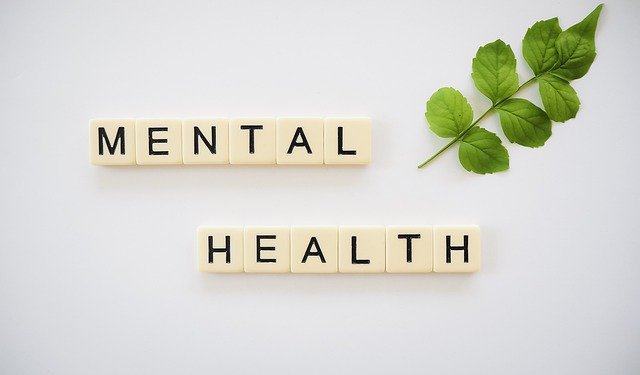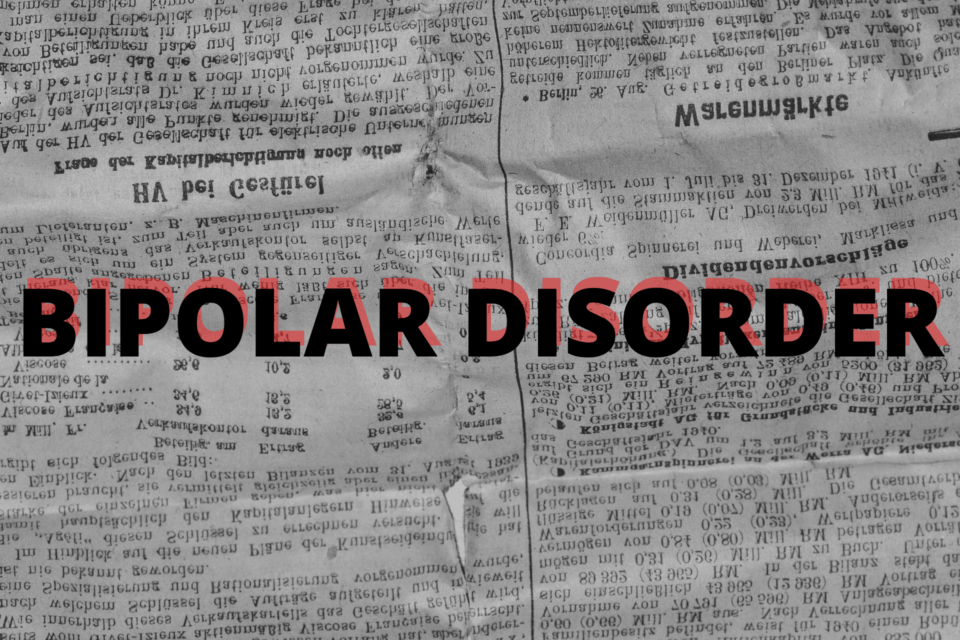Bipolar disorder or maniac depression is used to define a type of brain disorder that causes severe emotional highs (mania or hypomania) and lows (depression) moods and changes in sleep, energy, thinking, and behavior.
In our country, mental health and related terms are not favored to be discussed openly. And that’s one of the primary obstacles that halts awareness about mental well-being. Those affected are either termed as possessed by spirits or victims of witchcraft.
Similarly, information and acceptance about bipolar disorders have not gained momentum in the country.
Individuals experiencing bipolar disorders often find themselves struggling to manage daily life tasks in every sphere of their lives.
Regardless of age or gender, bipolar disorder can affect anyone, at any stage. The root cause also varies from person to person- and their mental health. Factors such as lifestyle choice, environment, brain trauma, and even genetic can result in bipolar disorder. Since bipolar disorder is classified based on the mood swings of the individual, the behavioral patterns will differ depending on the individual’s gender and age.
According to Healthline, “The changes in mood associated with bipolar disorder cause changes in energy too. People experiencing a bipolar disorder episode often have different behaviors, activity levels, and more.
People with bipolar disorder often experience irritability. This emotion is common during manic episodes, but it can occur at other times too.
An irritable person is easily upset and often bristles at others’ attempts to help them. They may be easily annoyed or upset with someone’s requests to talk. If the requests become persistent or other factors come into play, the person may anger easily and often.”
Why is it called Bipolar disorder?

People who have bipolar disorder can have periods in which they feel overly happy and energized and other periods of feeling very sad, hopeless, and sluggish. In between those periods, they usually feel normal. You can think of the highs and the lows as two “poles” of mood, which is why it’s called “bipolar” disorder.
Causes
- Genetic factors: more common in those who have a family member with the condition.
- Biological traits: imbalances in neurotransmitters or hormones that affect the brain may cause the disorder.
- Environmental factors: traumatic life events, such as abuse, mental stress, losing a close one, may trigger an initial episode in a susceptible person.
Symptoms of Bipolar disorder

According to the International Bipolar Association, symptoms vary between individuals. For some people, an episode can last for several months or years.
Others may experience “highs” and “lows” at the same time or in quick succession. In “rapid cycling” bipolar disorder, the person will have four or more episodes within a year.
Also Read: 13 Common Migraine Triggers you need to know about
Mania or hypomania
Hypomania and mania are high moods. Mania is more intense than hypomania.
Symptoms can include:
- impaired judgment
- feeling wired
- sleeping little but not feeling tired
- a sense of distraction or boredom
- missing work or school
- underperforming at work or school
- feeling able to do anything
- being sociable and forthcoming, sometimes aggressively so
- engaging in risky behavior
- increased libido
- feeling exhilarated or euphoric
- having high levels of self-confidence, self-esteem, and self-importance
- talking a lot and rapidly
- jumping from one topic to another in conversation
- having “racing” thoughts that come and go quickly, and bizarre ideas that the person may act upon
- denying or not realizing that anything is wrong
Some people with bipolar disorder may spend a lot of money, use recreational drugs, consume alcohol, and participate in dangerous and inappropriate activities.

Depressive symptoms
During an episode of bipolar depression, a person may experience:
- a feeling of gloom, despair, and hopelessness
- extreme sadness
- insomnia and sleeping problems
- anxiety about minor issues
- pain or physical problems that do not respond to treatment
- eating more or eating less
- weight loss or weight gain
- extreme tiredness, fatigue, and listlessness
- an inability to enjoy activities or interests that usually give pleasure
- difficulty focusing and remembering
- irritability
- sensitivity to noises, smells, and other things that others may not notice
- an inability to face going to work or school, possibly leading to underperformance
In severe cases, the individual may think about ending their life, and they may act on those thoughts.
Types of Bipolar Disorder
- Bipolar I – Characterized by alternating severe depression and intense mania
- Bipolar II – It involves severe depression but a less intense mania (hypomania)
- Cyclothymic disorder – A less severe form of mania and depression
- Other types – Bipolar and related disorders induced by certain alcohol, drugs, harmful substances, or due to a medical condition, such as Cushing’s disease, Multiple sclerosis, or Stroke.
Risk Factors associated with Bipolar Disorder
- Extreme stress
- Physical or sexual abuse
- Physical illness
- Substance abuse
- Death of a loved one
- Excessive worry, about work or relationships
- Age as a risk factor
- Hormonal factors
Diagnosis For Bipolar Disorder
Bipolar disorder causes changes in mood and behavior that significantly alters life on a day-to-day basis. Affected people show intense emotional changes. However, there is no single test that could confirm a diagnosis of bipolar disorder. that’s why a combination of methods is used to diagnose the condition.
What are the treatments for Bipolar Disorder?
According to Cadabams Hospital, Bipolar disorders are treated with three main groups of medications, antipsychotics, mood stabilizers, and antidepressants.
Most of the time people with bipolar disorder, a combination of two or more medications is used to address the various symptoms.
Psychotherapy/talk therapy is an important part of treatment for bipolar disorder.
Psychoeducation and behavioral therapy are psychological treatments, which are in widespread clinical usage.
Medication and other therapies can help people to manage bipolar symptoms and ease the highs and lows which are the barriers to living a normal, healthy, and productive life.
Self-awareness
If you feel like something is not right and you find it difficult to express and experience sudden shifts in moods and emotions, then you should seek immediate help. Signs like hopelessness, despair, low energy are some indicators for making you notice that something is wrong.
Talk to your close ones, seek help if severe mood variations are affecting your daily life and making you suicidal.
further reading:




